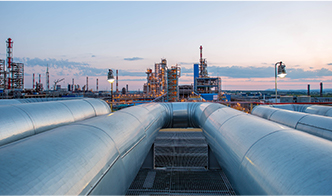-
Cangzhou Yulong Steel Co., Ltd.
-
Phone:
+86 13303177267 -
Email:
admin@ylsteelfittings.com
- English
- Arabic
- Italian
- Spanish
- Portuguese
- German
- kazakh
- Persian
- Greek
- French
- Russian
- Polish
- Thai
- Indonesian
- Vietnamese
- Zulu
- Korean
- Uzbek
- Hindi
- Serbian
- Malay
- Ukrainian
- Gujarati
- Haitian Creole
- hausa
- hawaiian
- Hebrew
- Miao
- Hungarian
- Icelandic
- igbo
- irish
- Japanese
- Javanese
- Kannada
- Khmer
- Rwandese
- Afrikaans
- Albanian
- Amharic
- Armenian
- Azerbaijani
- Basque
- Belarusian
- Bengali
- Bosnian
- Bulgarian
- Catalan
- Cebuano
- China
- China (Taiwan)
- Corsican
- Croatian
- Czech
- Danish
- Esperanto
- Estonian
- Finnish
- Frisian
- Galician
- Georgian
- Kurdish
- Kyrgyz
- Lao
- Latin
- Latvian
- Lithuanian
- Luxembourgish
- Macedonian
- Malgashi
- Malayalam
- Maltese
- Maori
- Marathi
- Mongolian
- Myanmar
- Nepali
- Norwegian
- Norwegian
- Occitan
- Pashto
- Dutch
- Punjabi
- Romanian
- Samoan
- Scottish Gaelic
- Sesotho
- Shona
- Sindhi
- Sinhala
- Slovak
- Slovenian
- Somali
- Sundanese
- Swahili
- Swedish
- Tagalog
- Tajik
- Tamil
- Tatar
- Telugu
- Turkish
- Turkmen
- Urdu
- Uighur
- Welsh
- Bantu
- Yiddish
- Yoruba

Nov . 14, 2024 20:24 Back to list
industrial metal pipe
The Importance of Industrial Metal Pipes in Modern Infrastructure
Industrial metal pipes play a crucial role in today’s infrastructure, serving as the backbone for various industries, including construction, manufacturing, and energy. These robust conduits are essential for transporting fluids, gases, and even solids in a range of applications. Understanding their significance and the materials from which they are made provides insight into their ubiquitous presence in our daily lives.
One of the primary benefits of using metal pipes in industrial applications is their durability. Unlike plastic or composite materials, metal pipes can withstand extreme temperatures, pressure, and harsh environmental conditions. Materials like stainless steel, carbon steel, and aluminum are frequently utilized due to their strength and resistance to corrosion. This makes metal pipes particularly suitable for industries such as oil and gas, where the integrity of transportation systems is critical for safety and efficiency.
Moreover, metal pipes are highly adaptable. They can be manufactured in various sizes, shapes, and thicknesses to meet specific requirements. This customization allows them to be used in diverse settings, from massive industrial plants to smaller commercial buildings. For instance, in the construction industry, metal pipes are commonly used in structural applications, plumbing systems, and even HVAC systems. Their versatility extends to the energy sector, where they are vital for transporting water, oil, and natural gas across vast distances.
industrial metal pipe

Another significant advantage of industrial metal pipes is their recyclability. As sustainability becomes a priority across all sectors, the ability to recycle metal pipes contributes to reducing environmental impact. Metal can be reused multiple times without losing its properties, promoting a circular economy. Many industries are increasingly adopting practices that prioritize recyclable materials, thus enhancing their environmental stewardship.
The installation and maintenance of metal pipes require skilled labor and expertise, which underlines the importance of training in the field. Proper handling and installation ensure that the pipes function effectively and have a long lifespan. Regular inspections and maintenance are also crucial to identify any signs of wear, corrosion, or damage, ensuring that systems remain safe and operational.
Innovation in metal pipe manufacturing has led to significant advancements in technologies that improve their performance. For example, the development of coatings and treatments that enhance corrosion resistance has expanded the applicability of metal pipes in various industries. These innovations not only increase the lifespan of the pipes but also reduce the cost associated with replacements and repairs.
In conclusion, industrial metal pipes are essential components of modern infrastructure, offering durability, adaptability, and sustainability. They are foundational to numerous industrial applications, from energy to construction. As technology continues to evolve, the potential for future innovations in metal pipe manufacturing will likely enhance their capabilities and further decrease environmental impact. The importance of these pipes cannot be understated, as they are integral to ensuring that various industries operate smoothly and efficiently, ultimately contributing to the advancement of society as a whole.
Latest news
-
ANSI 150P SS304 SO FLANGE
NewsFeb.14,2025
-
ASTM A333GR6 STEEL PIPE
NewsJan.20,2025
-
ANSI B16.5 WELDING NECK FLANGE
NewsJan.15,2026
-
ANSI B16.5 SLIP-ON FLANGE
NewsApr.19,2024
-
SABS 1123 FLANGE
NewsJan.15,2025
-
DIN86044 PLATE FLANGE
NewsApr.19,2024
-
DIN2527 BLIND FLANGE
NewsApr.12,2024
-
JIS B2311 Butt-Welding Fittings LR/SR 45°/90° /180°Seamless/Weld
NewsApr.23,2024











